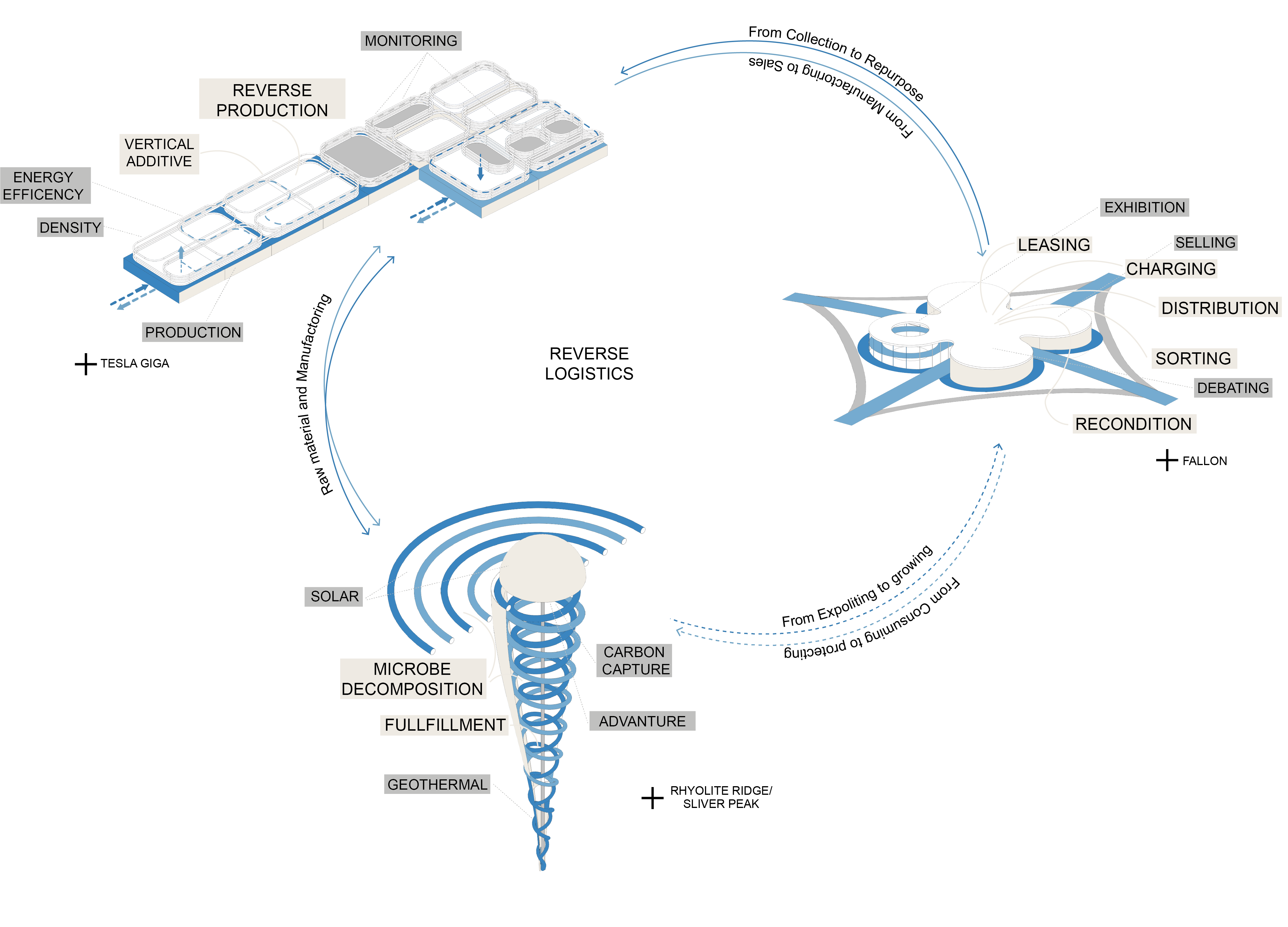
Li-Loop
The heralded shift towards an energy transition, often portrayed as an environmental panacea, demands an urgent and unflinching reevaluation of our entrenched policies and land-use strategies. Lithium batteries, glorified as the linchpins of this green revolution, unravel under scrutiny, exposing an unsettling paradox. The allure of electric vehicles, celebrated for their clean energy, masks a grim reality: a relentless drain on resources, significant environmental pollution, and a trail of ecological disruption. In the urban bastions of lithium battery usage, there lies an implicit complicity in a silent ecological onslaught against the hinterlands. These regions, rich in resources yet voiceless, bear the brunt of our so-called environmental advancements.
What steps can we take to challenge and rectify these injustices? How do we ensure that our pursuit of sustainable energy does not become a cloak for environmental and social exploitation?
This project re-imagining in Nevada’s lithium battery supply chain aims to confront these challenges head-on. By integrating transportation and infrastructure, Li-loops proposes a sustainable system for battery leasing and recycling, creating a circular industry chain. This approach includes developmental strategies for Silver Peak Valley, the Tesla Gigafactory at TRIC, and Fallon – key nodes in the battery life-cycle. The centerpiece, a battery recycling center in Fallon, is designed not just as a facility but as a symbol of the interconnectedness between urban demand and hinterland resources. This center, with its recycling station and micro-grid, serves as a practical model for energy self-sufficiency and responsible management of the battery supply chain, reflecting a commitment to more ethical and sustainable practices in the pursuit of green energy solutions.
.
